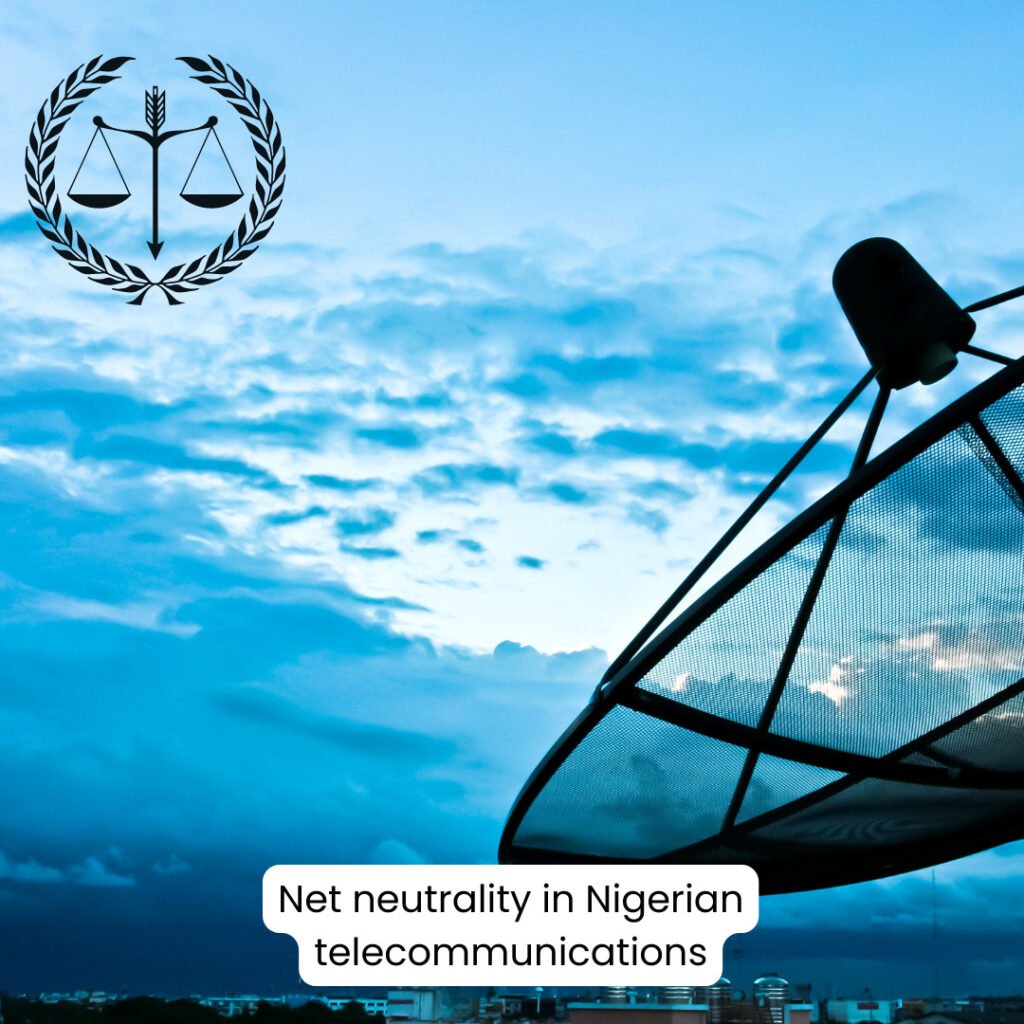Net Neutrality in Nigerian Telecommunications
In the modern digital era, access to the internet has become an essential utility, empowering individuals, businesses, and communities. Net neutrality, a fundamental principle of an open internet, ensures that all data on the internet is treated equally, without discrimination or preferential treatment. In Nigeria, a nation experiencing rapid technological growth, the concept of net neutrality holds significant importance in shaping the landscape of telecommunications and online activities. Understanding and upholding net neutrality is essential for preserving a free and open internet that promotes innovation, competition, and the democratization of information. In this article, we delve into the realm of net neutrality in Nigerian telecommunications, exploring its significance, challenges, regulatory approaches, and implications for internet service providers, consumers, and the broader digital ecosystem.

The Essence of Net Neutrality
Net neutrality embodies the principle that internet service providers (ISPs) should treat all online content, applications, and services equally, without blocking, throttling, or prioritizing certain data. This concept ensures that users have unfettered access to the entire breadth of the internet, regardless of the source or nature of the content.
The Significance of Net Neutrality
Net neutrality holds immense significance for several reasons:
- Free Expression and Innovation: Net neutrality fosters an environment where users can freely express themselves, share ideas, and innovate without arbitrary restrictions.
- Competition and Consumer Choice: Net neutrality prevents ISPs from favoring their own services or specific content, ensuring a level playing field for competition and consumer choice.
- Digital Inclusion: Upholding net neutrality is essential for bridging the digital divide, as it ensures that all users have equal access to online opportunities and resources.
- Preserving Openness: Net neutrality safeguards the open nature of the internet, preventing the creation of walled gardens and ensuring that information flows freely.
Challenges in Upholding Net Neutrality
Upholding net neutrality in Nigerian telecommunications comes with challenges:
- Traffic Management: ISPs may argue that they need to manage network traffic to ensure quality of service, potentially leading to conflicts with net neutrality principles.
- Innovation and Investment: Some ISPs may express concerns that strict net neutrality regulations could hinder their ability to invest in network infrastructure and innovate.
- Content Delivery: As online services evolve, debates may arise around whether certain content should be prioritized for improved user experiences.
- Legal and Regulatory Framework: Developing and enforcing effective net neutrality regulations that strike the right balance between innovation and access can be complex.
Regulatory Approaches
Regulatory approaches to net neutrality in Nigerian telecommunications can include:
- Enforceable Guidelines: Establishing clear and enforceable guidelines that prevent ISPs from engaging in discriminatory practices and favoritism.
- Transparency Requirements: Requiring ISPs to be transparent about their network management practices and any potential limitations on user access.
- Zero-Rating Considerations: Examining zero-rating practices, where certain content or services do not count against data caps, to ensure they do not undermine net neutrality.
Implications and Opportunities
Net neutrality has implications for ISPs, consumers, and the broader digital ecosystem:
- Consumer Empowerment: Upholding net neutrality ensures that consumers have equal and unimpeded access to the vast resources of the internet.
- Innovation and Competition: A neutral internet environment fosters innovation and competition, enabling startups and small businesses to thrive.
- Content Diversity: Net neutrality prevents the creation of internet fast lanes, preserving diverse and independent voices online.
Charting the Path Forward
The future of net neutrality in Nigerian telecommunications holds promise:
- Stakeholder Collaboration: Engaging with ISPs, consumer advocates, content creators, and technology experts can lead to well-informed and balanced net neutrality regulations.
- Continued Advocacy: Ongoing public awareness and advocacy efforts are crucial to ensure that net neutrality remains a central tenet of the digital landscape.
- Adaptation to Emerging Technologies: As new technologies and online services emerge, regulations may need to be adapted to address potential net neutrality challenges.
Conclusion
Net neutrality stands as a cornerstone of a free and open internet, fostering innovation, diversity, and equal access to information. By adopting principles that balance innovation, consumer protection, and regulatory oversight, Nigeria can create an environment where the internet remains a powerful force for empowerment, economic growth, and the exchange of ideas. As Nigeria continues its journey into the digital age, a proactive and adaptive approach to net neutrality will contribute to a digital future that values openness, inclusivity, and the free flow of information.
